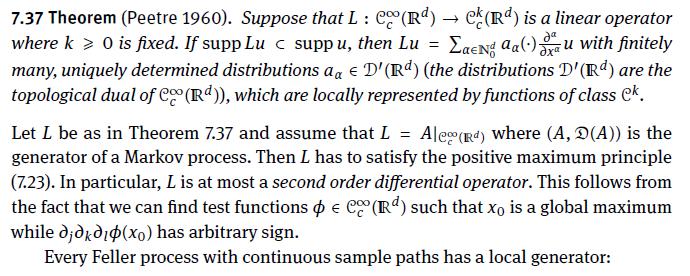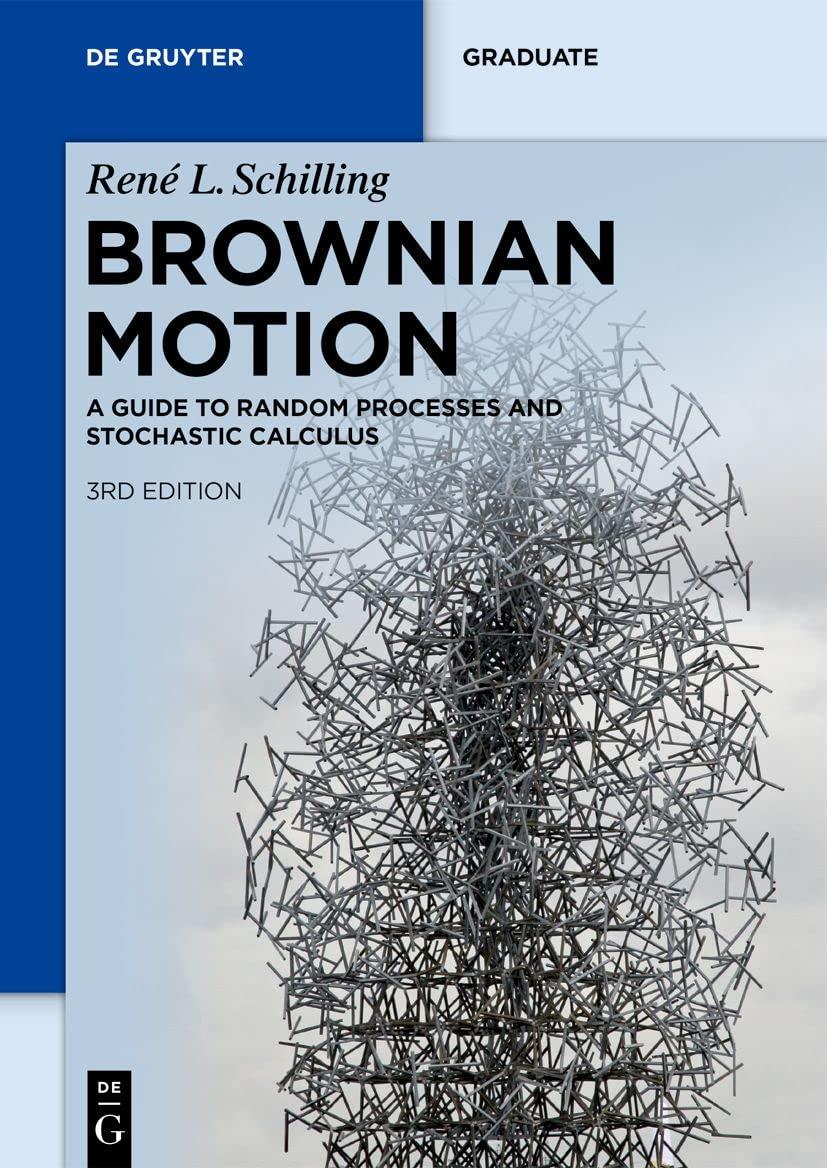Assume that (L: mathcal{C}_{c}^{infty}left(mathbb{R}^{d} ight) ightarrow mathcal{C}left(mathbb{R}^{d} ight)) is a local operator (cf. Definition 7.36) which
Question:
Assume that \(L: \mathcal{C}_{c}^{\infty}\left(\mathbb{R}^{d}\right) \rightarrow \mathcal{C}\left(\mathbb{R}^{d}\right)\) is a local operator (cf. Definition 7.36) which is almost positive, i.e. for all \(\phi \in \mathcal{C}_{c}^{\infty}\) such that \(\phi \geqslant 0\) and \(\phi\left(x_{0}\right)=0\) we have \(L \phi\left(x_{0}\right) \geqslant 0\).
a) Show that an operator that satisfies the positive maximum principle is almost positive. (This does not require locality).
b) Show that \(\operatorname{supp} L \phi \subset \operatorname{supp} \phi\).
c) Show that the operator \(L\) is of order two, i.e. \(\|L \phi\|_{\infty} \leqslant C\|\phi\|_{(2)}\) holds for all \(\phi \in \mathcal{C}_{c}^{\infty}(K)\) and any compact set \(K \subset \mathbb{R}^{d}\). Here, \(\|\phi\|_{(2)}=\sum_{0 \leqslant|\alpha| \leqslant 2}\left\|\partial^{\alpha} \phi\right\|_{\infty}\) and the constant \(C\) depends only on \(K\).
Consider \(f(y):=c\|\phi\|_{(2)}|x-y|^{2} \chi(y) \pm(\phi(y)-\phi(x) \chi(y)-abla \phi(x) \cdot(y-x) \chi(y))\) where \(\mathbb{1}_{K} \leqslant \chi \leqslant 1\) is a smooth cut-off function and \(c\) is a sufficiently large constant. Now apply almost positivity at \(x_{0}=x\).
d) Use Theorem 7.37 to conclude that \(L\) is a differential operator of order \(\leqslant 2\).
Data From Definition 7.36

Data From Theorem 7.37

Step by Step Answer:

Brownian Motion A Guide To Random Processes And Stochastic Calculus De Gruyter Textbook
ISBN: 9783110741254
3rd Edition
Authors: René L. Schilling, Björn Böttcher





